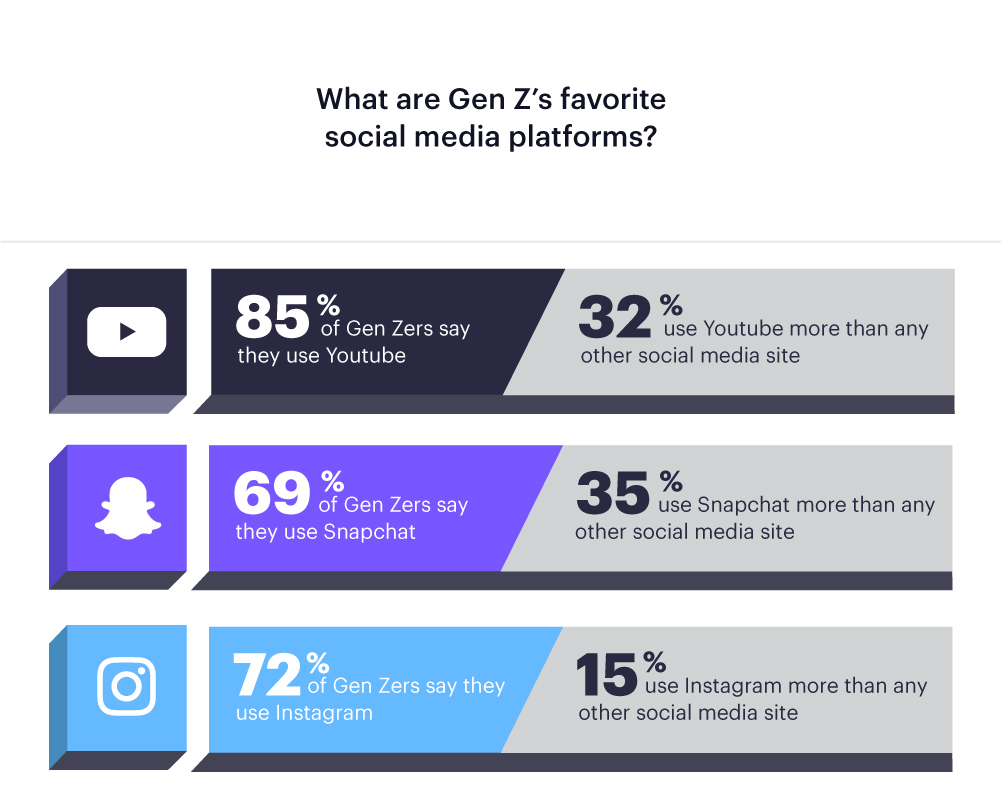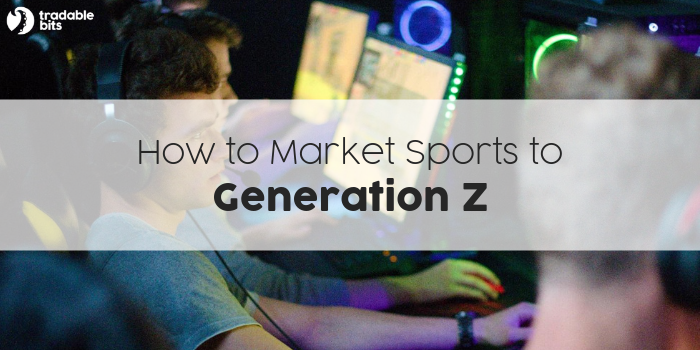Cracked the code of marketing to millennials? It’s time to move on. The next big undertaking for digital marketers is understanding Gen Z. The oldest members of this generation are entering the workforce for the first time, and even teens are bringing significant purchasing power with them—alongside a drastically different mindset from previous generations.
Who is Gen Z? What does being part of Gen Z mean?
The Gen Z label is commonly attributed to individuals born within 1997 and 2009, give or take a couple of years. This means the oldest among them have just entered their early twenties. In a study by Altitude on what makes them unique, they found what was commonly misinterpreted to be an extremely short attention span was anything but that. People in Gen Z have an evolved attention filter — eight seconds long, to be exact — which helps them quickly pinpoint whether activities are worth the further time investment. Growing up alongside fast-paced internet with content from different sources has trained them to seek trusted curators, content aggregation apps, and trends. Once their attention is hooked, it’s hooked for a while.
 (c/o Oleg Magni, Unsplash)
(c/o Oleg Magni, Unsplash)
It’s this internet culture that has led them to manage their own presence with the professionalism of a brand manager. Altitude’s study found it as a result of social pressure. The most significant conversations happen on social media, and it’s where all their friends (and idols) operate. Fitting into the crowd while standing out, and engaging deeply with social media but building a good reputation outside of it are dichotomies Gen Z regularly grapples with.
This was echoed in a Think With Google report on Gen Z’s “Mobile-first mindset.” Today’s teens are full digital natives, unlike millennials who’ve experienced the awkward in-between of the transition from analog to digital, offline to online. Some key findings:
- Smartphones reign supreme. 78% of surveyed 13-17 year-olds use them.
- Teens got their first smartphones earlier. Most received theirs at an average of 12-13 years old, unlike millennials who got theirs at 16 or 20.
- Online video is their most common digital activity. 71% of teens say they spend more than 3 hours per day watching online videos.
- They’re concerned with cool. Teens perceive something as cool if their friends talk about it, if they see ads about it, and if what they see is personalized to them.
So Gen Z cares about appearances, stays online through a smartphone, and won’t give uninteresting content the time of day. How does this impact the way they view sports?
How Gen Z Engages with Sports
The sports scene is alive and well for Gen Z. However, like any other industry forced to adapt to the changing tastes of younger audiences, it isn’t immune to disruption. Here’s what we know about Gen Z’s relationship with sports according to explorations by entertainment media company Whistle Sports and the German WHU-Otto Beisheim School of Management.
 (c/o Anthony Brolin, Unsplash)
(c/o Anthony Brolin, Unsplash)
They have a wider definition of what sports are. Young Gen Z men are drawn to nontraditional sports. No wonder: they think nearly any physical activity can be a sport, but also includes mental strategy. To them, as long as an activity has rules, competition, and skill requirements, it can be a sport. Examples: eSports (gaming), trick shots, extreme running.
It’s about creativity and community. Much of Gen Z’s fascination with nontraditional sports is that they stem from more interactive, accessible activities. They can see trick shots in online videos and attempt to replicate them. Some are also incredibly popular, and the need to feel a sense of community. Take gaming. It’s a common hobby, participatory through online streaming services, and gives them the chance to hone their skills alongside what they see pros do.
They want shorter, more entertaining, personalized formats. Rather than watch a full football match, they’d rather skip to the highlights. To Gen Z, content should complement product, and highlight recommendations should be personalized to fit their preferences. They want the option to only view a particular player’s highlight reel. Or maybe they just want to see the best in goalkeeping.
How Sports Marketers Should Approach Gen Z
Here are some key tips on approaching marketing to Gen Z from our study of over 300 respondents.
- Use the right social media channels — and don’t cross-post the same content. Gen Z is always online, but they use different apps for different reasons. Twitter is a news source, Instagram is for aspirational lifestyle showcases, and Facebook is for information-seeking. But YouTube is king—85% of Gen Z-ers say they use YouTube, and 32% say they use it more than any other site. Want to showcase the most exciting moments in sports? YouTube’s the way to go.

- Email is for personal communication, but brands are good a couple of times a week. 64.9% of respondents say they use email primarily for personal use. Emails from brands aren’t out of the picture, though. 68% said sales or offers would encourage better open rates, and 60% talked about relevant content. Take the time to add personalization tags—it’s always better to open an email with your name on it.
- Connect on a human level. Sports is all about stories, and Gen Z-ers want to hear them. This is perfect for social media, which fosters a casual and conversational environment. Be friendly and approachable: 55% say they’ll stick with a brand they like.
Wrap Up
Ultimately, Gen Z wants tailored content, interactivity, and something that makes them feel close to a community. One size fits all messages will likely get lost in the void. So take cues from non-traditional sports, understand how close Gen Z is to their tech, and you’re in the running for a winning digital marketing strategy.
This post is a guest post by Ash Salleh, the Director of SEO at one of our email integration partners, Campaign Monitor.
